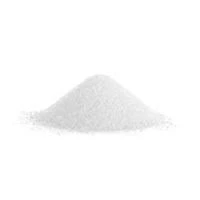
chilled water treatment chemicals
Understanding Chilled Water Treatment Chemicals Essential Components for Efficient HVAC Systems
Chilled water systems play a critical role in heating, ventilation, and air conditioning (HVAC) applications, particularly in commercial and industrial settings. These systems are designed to remove heat from a designated space and transfer it to an external environment, ensuring comfortable and controlled conditions. However, to maintain the efficiency and longevity of these systems, the use of chilled water treatment chemicals is essential. This article explores the significance, types, and application of these chemicals in optimizing chilled water systems.
The Importance of Chilled Water Treatment
Chilled water systems typically involve a complex network of pipes, coils, and cooling towers. Over time, these components can be affected by scaling, corrosion, microbial growth, and other issues that can impede their efficiency and lead to costly repairs or failures. The primary purpose of chilled water treatment chemicals is to mitigate these problems, ensuring that the system remains efficient, reliable, and cost-effective.
Common Types of Chilled Water Treatment Chemicals
1. Corrosion Inhibitors One of the most critical concerns in chilled water systems is corrosion, which can occur due to the interaction between metal components and water. Corrosion inhibitors are formulated to create a protective layer on the surface of metal parts, preventing rust and degradation. Commonly used corrosion inhibitors include phosphates, molybdates, and azoles, each designed for specific metal types and water chemistry.
2. Scale Inhibitors Scale formation can severely impact the efficiency of heat exchangers and chillers by reducing heat transfer capabilities. Scale inhibitors, such as polyacrylate and phosphonates, work by disrupting the crystallization process and preventing mineral deposits from adhering to surfaces. This ensures that the system maintains optimal performance and energy efficiency.
chilled water treatment chemicals

3. Biocides The presence of bacteria, algae, and fungi in chilled water systems can lead to biofilm formation, which not only reduces heat transfer efficiency but can also cause foul odors and health hazards. Biocides, such as chlorine, bromine, and quaternary ammonium compounds, are employed to control microbial growth and protect the system from contamination.
4. pH Adjusters Maintaining the proper pH level in chilled water systems is crucial to avoid corrosion and scaling. pH adjusters, like sodium hydroxide or sulfuric acid, help regulate the acidity or alkalinity of the water, ensuring a balanced environment for the other treatment chemicals to work effectively.
Application of Chilled Water Treatment Chemicals
The application of these treatment chemicals requires careful consideration of various factors, including the system's design, water quality, and operating conditions. Typically, a water analysis is performed to understand the existing conditions and identify the specific problems that need addressing. Based on these insights, a tailored chemical treatment program can be developed.
Implementing an effective chilled water treatment program involves regular monitoring and adjustment of chemical dosages. This ensures that the system remains in optimal condition while preventing over-treatment, which can cause additional issues. Operators should also keep an eye on indicators of performance, such as energy consumption, pressure drops, and changes in water quality.
Conclusion
Chilled water treatment chemicals are vital components for ensuring the efficient operation and longevity of HVAC systems. By addressing issues like corrosion, scaling, and microbial contamination, these chemicals preserve the integrity of chilled water systems, ultimately contributing to improved energy efficiency and lower operational costs. Investing in a proper treatment program not only protects the infrastructure but also enhances the comfort and health of indoor environments. As HVAC technology continues to evolve, staying informed about the latest treatments and best practices will be essential for facility managers and HVAC professionals alike.
-
Pure Sodium Dichloroisocyanurate Dihydrate | Powerful DisinfectantNewsAug.29,2025
-
Industrial Chemicals: Quality & Purity for Every IndustryNewsAug.28,2025
-
Nitrile Rubber Honoring Strict Production StandardsNewsAug.22,2025
-
Aspartame Ingredients Honoring Food Safety ValuesNewsAug.22,2025
-
Fertilizer for Balanced Plant NutritionNewsAug.22,2025
-
Cyanide Gold Processing with High Purity AdditivesNewsAug.22,2025
-
Formic Acid in Textile Dyeing ApplicationsNewsAug.22,2025
Hebei Tenger Chemical Technology Co., Ltd. focuses on the chemical industry and is committed to the export service of chemical raw materials.
-

view more DiethanolisopropanolamineIn the ever-growing field of chemical solutions, diethanolisopropanolamine (DEIPA) stands out as a versatile and important compound. Due to its unique chemical structure and properties, DEIPA is of interest to various industries including construction, personal care, and agriculture. -

view more TriisopropanolamineTriisopropanolamine (TIPA) alkanol amine substance, is a kind of alcohol amine compound with amino and alcohol hydroxyl, and because of its molecules contains both amino and hydroxyl. -

view more Tetramethyl Thiuram DisulfideTetramethyl thiuram disulfide, also known as TMTD, is a white to light-yellow powder with a distinct sulfur-like odor. It is soluble in organic solvents such as benzene, acetone, and ethyl acetate, making it highly versatile for use in different formulations. TMTD is known for its excellent vulcanization acceleration properties, which makes it a key ingredient in the production of rubber products. Additionally, it acts as an effective fungicide and bactericide, making it valuable in agricultural applications. Its high purity and stability ensure consistent performance, making it a preferred choice for manufacturers across various industries.





